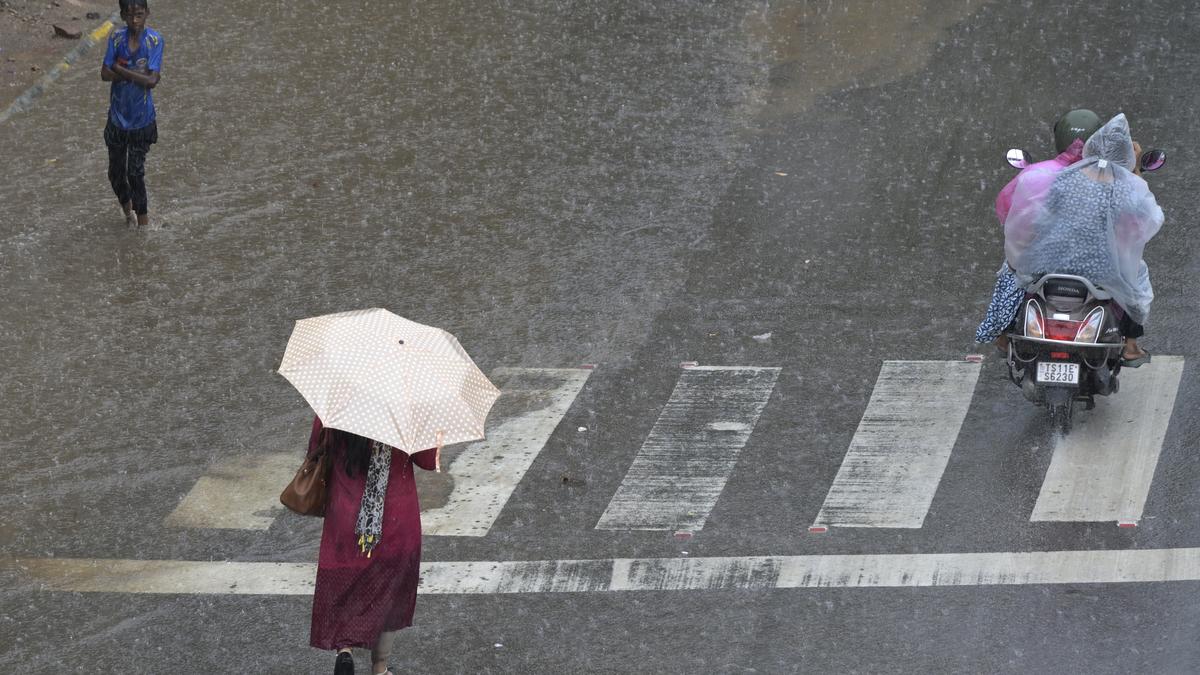The Supreme Court on April 30 said the Directorate of Enforcement (ED) would have to justify the timing of the arrest of Delhi Chief Minister Arvind Kejriwal in the excise policy case on March 21, barely a week after the Model Code of Conduct for the Lok Sabha election came into force.
A Bench of Justices Sanjiv Khanna and Dipankar Datta wound up the second consecutive day of hearings in a petition filed by Mr. Kejriwal, on his fifth furlough of remand till May 7, with a parting shot at the Central agency.
Arvind Kejriwal hearing updates April 30, 2024
“Life and liberty is very important. We cannot deny that,” Justice Khanna reminded Additional Solicitor General S.V. Raju, who will open the ED’s counter arguments on May 3.
Justice Khanna said the Central agency has to address the court “on the timing of his [Mr. Kejriwal’s] arrest before the elections”.
The court’s insistence that the agency should address the issue was significant as the Delhi Chief Minister has based his petition on the argument that his arrest was timed to crush the Opposition ahead of the general election.
Mr. Kejriwal and the Aam Aadmi Party (AAP) he heads has portrayed the ED as a “tool” for the ruling BJP.
“What was so imminent about my arrest? Was I a hardened criminal or a terrorist who would run away… So, did you leave a guilty Chief Minister to roam free all these years?” senior advocate A.M. Singhvi, appearing for the Chief Minister, had argued on Monday.
The ED has maintained that the arrest was on the basis of material evidence. “Criminal” politicians cannot expect immunity from arrest on the grounds that they want to campaign for elections, the agency had retorted in a 87-page affidavit.
Justice Khanna explained that Mr. Kejriwal’s defence was focussed on the circumstances of his arrest as getting bail would be hard under the Prevention of Money Laundering Act. Under Section 19 (the ED’s power to arrest), the onus was on the agency to show reasonable basis and material to prove an accused person’s guilt. Whereas, under Section 45 (bail under PMLA), the burden shifts to the accused to prima facie convince a court that he is innocent.
Earlier in the hearing, Mr. Singhvi pointed out that an arrest in a PMLA case could only be effected if the investigating officer had reason to believe the “guilt” of the accused. “An arrest cannot happen on the basis of suspicion. The threshold is very high,” the senior lawyer contended.
He said the arrest of Mr. Kejriwal was based on hearsay and statements that accused-turned-approvers had made after their arrest. Though none of their earlier statements had named Mr. Kejriwal, these were suppressed by the agency.
“If a statement of a witness is relied upon, earlier contrary statements of the witness should also be relied upon. Grounds of arrest must be comprehensive, must refer to relevant facts,” Mr. Singhvi said.
One of the accused, Sarath Reddy, had earlier refused to name Mr. Kejriwal. The ED had objected to his plea for interim bail though his wife was unwell. His request for bail, however, sailed through after he made a statement implicating Mr. Kejriwal. A similar train of events happened with another accused, Raghav Magunta. “Once the statement (naming the CM is made), the ED’s opposition suddenly turns into benevolence,” Mr. Singhvi said.
He said Mr. Magunta and his father were contesting the elections. “It was a farce... turning approvers and all,” Mr. Singhvi said.
He stressed that there was not a shred of evidence on the money trail or the proceeds of crime under Section 3 of the PMLA. The statement of Mr. Kejriwal under Section 50 of the PMLA was not recorded before his arrest. On the allegations that money was spent on the Goa election campaign, Mr. Singhvi said neither was AAP made a party in this case nor did the ED claim that the money was crime proceeds that passed through Mr. Kejriwal into the party coffers.
The Supreme Court questioned the continuous flow of complaints from the initiation of proceedings. It noted that Section 8 of the PMLA required the investigation to be completed at the most in 365 days.
The court asked the ED which facts of AAP leader Manish Sisodia’s case were relevant in Mr. Kejriwal’s case. Mr. Singhvi had pointed out that no adverse findings were recorded against Mr. Kejriwal by the Supreme Court in an earlier judgment that had denied Mr. Sisodia bail in the excise policy case.

 2 weeks ago
109
2 weeks ago
109


